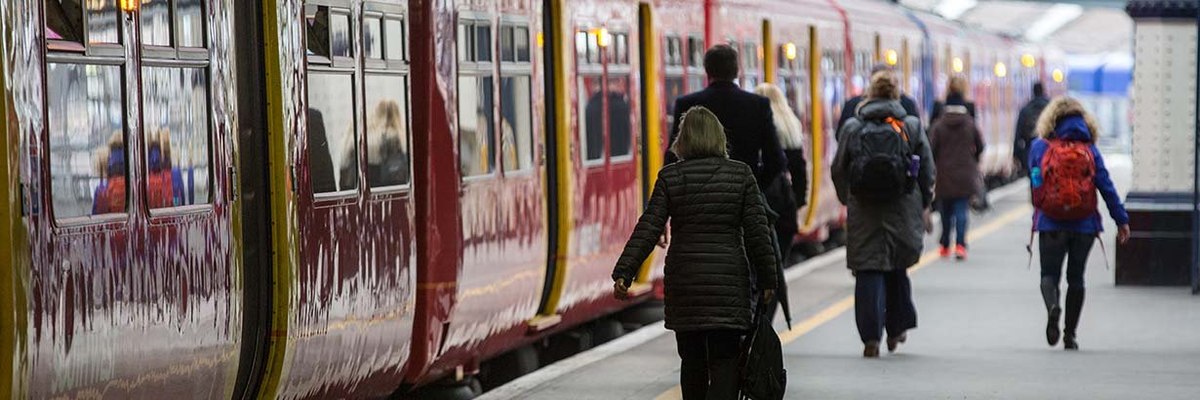Large majorities of Britons now want to see water, energy, railway and bus companies nationalised
Today saw the first King’s Speech of the new Labour government, with Charles III outlining the government’s legislative plans for the year ahead at the state opening of Parliament.
One of the key policies included in the list was Labour’s plan to nationalise the railways by bringing train operators into public ownership, a pledge they had included in their recent election manifesto.
A YouGov survey conducted in June showed that there is widespread support for bringing railway companies into the public sector – and for further nationalisations as well.
Fully three quarters of Britons (76%) said that railway companies should be run in the public sector, compared to only 13% who thought they should continue to be run by the private sector.
This is a substantial increase in support for nationalisation from when we asked the same question two election campaigns prior – during the 2017 general election campaign 60% had said that the railways should be nationalised and 25% kept privatised.
Support for running utilities in the public sector has grown at an even more rapid pace since 2017, and most so in the case of water companies. While 59% had wanted water companies nationalised seven years ago, that figure now stands at 82% - an increase of 23 points. This of course follows public anger in recent months about record levels of sewage discharge, and attempts by the companies to pass the cost of fixing those issues on to consumers through higher bills.
Desire to nationalise energy companies has risen at an only marginally lower rate of 18 points, rising from 53% in 2017 to 71% now. This likewise probably reflects diminished public satisfaction with energy firms since bills began to increase significantly in the second half of 2021. A YouGov tracker survey on attitudes towards the utilities sector in general shows that the proportion of people with a negative opinion of the sector rose from an average of 35% in 2020 to an average of 65% over the last twelve months.
Returning to public transport and we can see that support for nationalising bus companies has also risen, with 66% now saying they should be run in the public sector, up from 50% in 2017. Last year saw Greater Manchester bring many of their buses back into public control under mayor Andy Burnham, while in London mayor Sadiq Khan is also seeking to bring London buses into public ownership.
Core functions of the state continue to be the most widely preferred to be run in the public sector, with 89% saying so for the police, 87% the NHS, 86% the armed forces and 85% schools.
At the other end of the scale, few people think that we should return to a time where the UK has a national airline (17%). Likewise, only a minority want to see telecoms renationalised (39%), and only 30% think banks should be run in the public sector.
Support for nationalised public transport and utilities is the dominant view across party lines
While the debate over privatisation and nationalisation was a historical dividing line between Labour and the Conservatives, this is no longer the case among the electorate. Across voters planning to pick one of the four biggest parties during the 2024 election campaign, there was support for bringing public transport and utilities into the public sector.
A majority of those who were planning to vote Conservative in mid-June are in support of railway nationalisation (60%), as were 77% of Reform UK voters, 81% of Lib Dem voters and 87% of Labour voters.
Most from each party also supported bringing energy companies into the public sector (52-80%), and there is particularly strong backing for nationalising water companies (70-90%).
When it comes to bus companies there is again strong majority support among Reform UK, Labour and Lib Dem voters (65-77%), with support lower among Tory voters just shy of a majority at 48% (42% prefer to keep them privatised).
What do you think about rail nationalisation, the privatisation vs nationalisation debate in general, and everything else? Have your say, join the YouGov panel, and get paid to share your thoughts. Sign up here.
Photo: Getty






